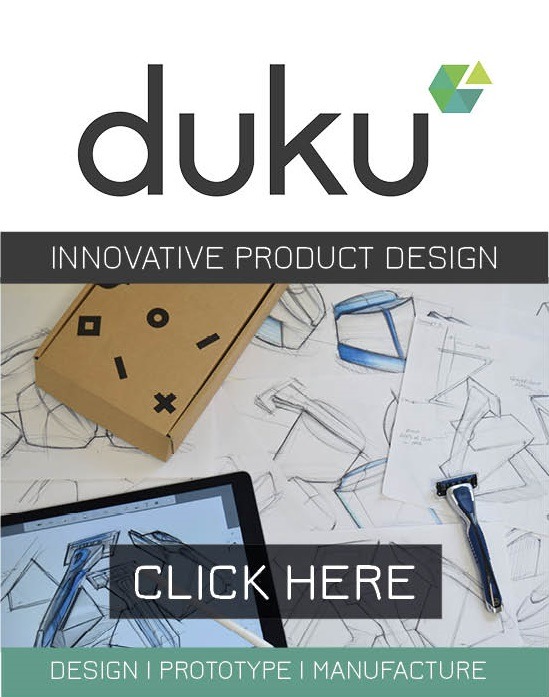Ask an Expert
What Our Customers Say...


I want to personally thank Charlie Heal , Emily Fox, Cara McAtee, and the entire team at Albright IP for their hard work, dedication, and professionalism in helping me submit my first ever patent: the Baffer Ball fire suppression system.
From the very first meeting, Charlie and Emily made everything feel clear, comfortable, and respectful. They listened carefully to my ideas, even though I’m not from a technical or legal background – I’m a painter and decorator by trade. But they believed in my vision and treated it with such care and seriousness that I felt truly supported as an inventor.
Over several months, we worked closely by email and phone. Charlie and the team guided me step by step to build one of the strongest, clearest, and most professional patent drafts I could have hoped for. The claims they wrote are powerful, and the language used shows how deeply they understood my invention. They didn’t just file a document – they helped shape a legacy.
Charlie, even though he is young, is incredibly professional and experienced. I am amazed at how he managed such a complex project with kindness, patience, and precision. Emily and Cara were also fantastic throughout.
This was not just paperwork – this was my dream since childhood. And Albright IP helped me make that dream real.
💬 I look forward to working with them again on future patents. The Baffer Ball is just the beginning – and I am proud that Albright IP was there from Day 1.
Thank you so much again — from the bottom of my heart.
— Morteza

He’s not only incredibly knowledgeable, but also warm and approachable. No question has ever felt too small, and he genuinely cares about the success of my business. I’d highly recommend Marc to anyone looking for a dedicated, trustworthy, and skilled patent attorney.



The patent was filed within weeks and had a depth of technical input from Albright that was excellent. I'm very pleased.
I have filed patents in the past but working with Albright IP was a totally different experience. I recommend them without hesitation.

Their knowledge regarding the patent process is extensive.
They have help me navigate the complex process to gain patent granted on my first design and patent pending on my second design.
I feel reassured and confident to put my designs in their hands knowing they will give the best advice based on the facts and not for their own financial gain.
Brilliant company.
Kathryn Haslam
Comfyi.

They were also very clear regarding fees, and set out a very helpful visual timeline and cost breakdown on the whole patent application process at the pre-sales stage. This emphasis on making sure I understood all aspects of the work, and having documentation to help with that, is something I didn't see with any of the other patent services I was talking to at the time. This clear communication continued throughout our interactions.
Would recommend Albright IP to anyone looking to patent an invention. The patent they filed for me was for a software invention.
No upselling for their fee either, just a fair, professional appraisal...
Thanks to Allbright, I am not spending thousands on a low hope project (when I so easily could have been).
Then end result being that we accomplished everything I wanted to in time and budget.
Highly recommend.
Need a Product Designer?
Helpful Tips
Do I have to identify the designer?
It is possible to waive the name of the designer when filing a European Community Design, but you should be sure that you have the rights to the design
GLOSSARY (I)
IDS
Information Disclosure Statement (“IDS”) – a statement to filed in support of your US patent application informing the US Patent & Trademark Office of public disclosures relevant to your invention and known to you.
IN FORCE
A patent which is ‘in force’ has been granted and is being kept in force or ‘alive’ as the renewal fees are being paid every year.
INDEPENDENT CLAIM
A claim of a patent which stands alone and is not dependent or related to an earlier claim. During infringement and validity considerations, such a claim is read by itself without influence from other claims.
INDUSTRIALLY APPLICABLE
The invention to which a patent relates must be capable of being put into practice. Ideas that cannot practically exist cannot be patented, for example, a perpetual motion machine.
INFRINGEMENT (PATENT)
Patent infringement occurs when the rights of the Patentee are breached. A person infringes a UK patent, if while it is in force, they do any of the following in the UK without the consent of the proprietor: a) If a patent product – make, offer to dispose, use, import or keep the product; b) If a patented process – use or offer to use the process in the UK where it is known or would be obvious that it would infringe to do so; c) If a patented process: offer to dispose, use, import or keep any product obtained directly by the process.
INNOCENT INFRINGEMENT
Ignorance of the fact that a patent exists in respect of a product, or that a particular work is copyrighted, is a partial defence to an allegation of infringement. Innocent infringement is still infringement, but damages are not recoverable by the right holder. The onus is on the infringer though to prove that they were not aware, and had no reasonable grounds for supposing, that rights existed. It is not enough simply to fail take reasonable steps to investigate whether rights exist.
INTELLECTUAL PROPERTY
Intellectual Property is the umbrella term covering the intangible property assets that result from original creative and inventive thought, including patents, copyright material, aesthetic designs, and trademarks.
INTELLECTUAL PROPERTY OFFICE (IPO)
The operating name of The Patent Office. The official government body responsible for intellectual property rights in the UK. See – ipo.gov.uk.
INTELLECTUAL PROPERTY REGULATION BOARD (IPREG)
The Intellectual Property Regulation Board is the body responsible for regulating the Patent Attorney and Trade Mark attorney professions in the UK.
INTERNATIONAL PRELIMINARY EXAMINING AUTHORITY (IPEA)
During the international phase of a PCT application, an applicant has the option of requesting examination. The IPEA is the official body who carries out substantive examination.
INTERNATIONAL PRELIMINARY EXAMINATION REPORT (IPER)
This is the work product of the IPEA, and is normally based on the Written Opinion (see ISR below) and any amendments / comments / arguments filed by the applicant. The IPER is published around 30 months from the filing (or priority) date.
INTERNATIONAL PRELIMINARY REPORT ON PATENTABILITY (IPRP)
This is normally based on either the Written Opinion of the ISA or the IPER of the IPEA if examination was undertaken during the international phase. The IPRP is forwarded to the applicant no later than 2 months before national / regional phase processing commences and is made available to the public around 30 months from the filing (or priority) date.
INTERNATIONAL SEARCHING AUTHORITY (ISA)
This is the official body that carries out a detailed search relating to the patentability of an invention during the international phase of a PCT application.
INTERNATIONAL SEARCH REPORT (ISR)
This is the document issued by the ISA as a result of their search. The ISR typically lists documents considered relevant to the novelty and/or invention step of the invention, and usually identifies the specific claim(s) of the application to which the citations are considered relevant.
For the applicant, the ISR is accompanied by a non-binding ‘Written Opinion’ on the patentability of the invention. The opinion is non-binding on the national / regional patent offices that receive the application for national/regional phase processing. The Written Opinion is only made public around 30 months from the filing (or priority) date of the application.
INVENTIVE STEP
Inventive step is one of the requirements of patentability. An invention must involve an inventive step; an inventive step is present when the invention would not be obvious to a person skilled in the art. In patent law, the terms inventive step and non-obviousness are used interchangeably.
INVENTOR
An inventor is the actual devisor of the invention. This is someone who has contributed to the technical content of the patent application. Inventors have a legal right to be mentioned in the patent application (see ‘Mention of Inventor’).

